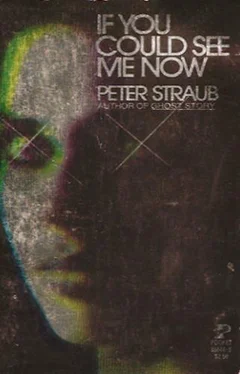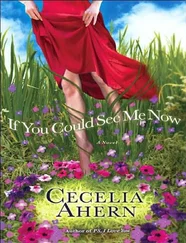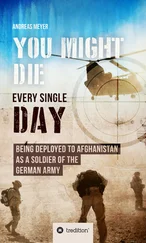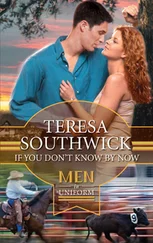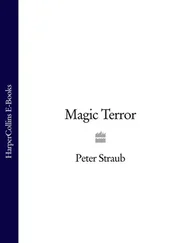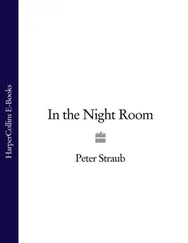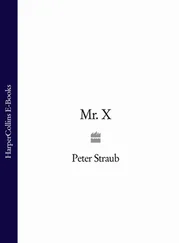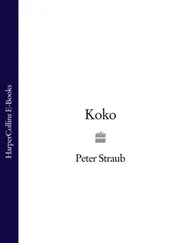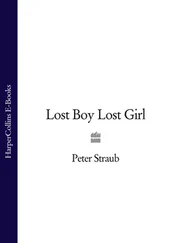Friends of Duane’s, I thought, and then realized I was wrong. If they were merely that, they would be laughing. This businesslike silence was more ominous than stone-throwing. I looked over my shoulder: they still stood, bunched together and hands in pockets, before the dark bar window. They were watching me. I fled into Freebo’s.
“Who are those men?” I asked him. He came hurriedly down the bar, wiping his hands on a rag.
“You look a little shook up, Mr. Teagarden,” he said.
“Tell me who those men are. I want their names.”
I saw the drinkers at the bar, two thin old men, pick up their glasses and move quietly off.
“What men, Mr. Teagarden?”
“The ones across the street, standing in front of a bar.”
“You mean the Angler’s. Gee, I don’t see anybody there, Mr. Teagarden, I’m sorry.”
I went up to the long narrow window overlooking the street and stood beside him. The men had vanished. A woman with her hair in curlers pushed a baby carriage in the direction of the bakery.
“They were just there,” I insisted. “Five, maybe six, a couple of farmers and a few others. They threw rocks at me.”
“I dunno, Mr. Teagarden, it could have been some kind of accident.”
I glared at him.
“Let me get you a drink on the house,” he said. He turned away and put a shot glass beneath one of the upended bottles. “There. Put that inside you.” Meekly, I drank it in one gulp. “You see, we’re still all upset around here, Mr. Teagarden. It was probably because they didn’t know who you were.”
“It was probably because they did know who I am,” I said. “Friendly town, isn’t it? Don’t answer, just get me another drink. I have to see Polar Bears, Galen I mean, in a little while but I’m going to stay in here until everybody goes home.”
He blinked. “Whatever you say.”
I drank whiskies, taking my time over them. Several hours passed. Then I had a cup of coffee, and after that another drink. The other men in the bar regarded me surreptitiously, shifting their eyes toward the mirror when I raised my glass or leaned on the bar. After an unendurable time of this, I took Withers’ book out of my jacket pocket and began to read it on the bar. I switched from whiskey to beer and remembered that I’d had nothing to eat.
“Do you have sandwiches in here?”
“I’ll get one for you, Mr. Teagarden. And another cup of coffee?”
“And a cup of coffee and another beer.”
Withers’ book was unreadable. It was unbearably trivial. I began to tear out pages. If you find a pattern, you should stick to it. Now the other men in the bar no longer bothered to conceal their stares. I recognized in myself the buzzing frontal lobes of intoxication. “Do you have a wastebasket, Freebo?” I asked.
He held up a green plastic bucket. “Is that another one you wrote?”
“No, I never wrote anything worth publishing,” I said. I pitched the ripped pages into the green bucket. The men were staring at me as they would at a circus ape.
“You’re shook up, Mr. Teagarden,” Freebo said. “See, it won’t help any. You’ve had a few too many, Mr. Teagarden, and you’re kinda upset. I think you ought to go out in the fresh air for a little bit. You’re all paid up in here, see, and I can’t serve you any more. You oughta go home and have a rest.” He was walking me toward the front of the bar, talking in a low, calming voice.
“I want to buy a record player,” I said. “Can I do that now or is it too late?”
“I think the stores just closed, Mr. Teagarden.”
“I’ll do it tomorrow. Now I have to see Polar Bears Galen Hovre.”
“That’s a good idea.” The door closed behind me. I was standing alone on a deserted Main Street; the sky and the light were darkening, though it would not be dusk for at least two hours. I realized that I had spent most of the day in the bar. Signs on the bakery and department store doors read CLOSED. I glanced at the Angler’s Bar, which seemed from the outside to be as empty as Freebo’s. A single car went past in the direction of the courthouse. Once again, I could hear the beating of pigeons’ wings, circling way up above.
At that moment the town seemed haunted. The Midwest is the place for ghosts, I realized, the truest place for them; they could throng up these wide empty Main Streets and populate the fields. I could almost feel them around me.
With these thoughts in my mind, I started when I heard footsteps behind me. I looked over my shoulder and saw only an empty street lined with cars like the deserted hulls of insects. When I turned my neck, I again heard the footsteps, a crowd of them. I began to walk quickly, and heard them follow. The street lay wide and deserted before me, lined with empty cars and blank deserted shops. I heard the electric buzz of a neon sign, in the window of a kitchen supplier’s. Reality’s veneer seemed on the verge of dissolution, even the pavement and the brick storefronts were stretched taut over a drumming void. I began to run, and heard them running behind me. I turned my head again, and was almost relieved to see a crowd of thick-waisted men making down the street toward me.
The courthouse was four blocks away, in a straight line up Main Street, but I didn’t have a chance of getting there before they caught me. In the brief glimpse I had, some of them seemed to be carrying sticks. I pumped around the next corner and doubled back into an alley. When I reached the rear of Freebo’s I hunched down beside a group of large silver garbage cans; I did not have time to reach the end of the alley. The group of men had clearly divided; two of them appeared at the alley’s entrance and began to half-trot toward me. I crouched as low as I could get behind the big silver cans. Their footsteps approached, and I heard them breathing hard. They were even less accustomed to running than I was.
One of them distinctly exclaimed, “Shit.”
I waited until I heard them returning; they passed my hole, and then clattered toward the alley’s entrance. When I peeked out, I saw them turning right to follow the rest of the group. My back to the buildings, legs ready to spring, I edged down the alley’s length. I looked cautiously out at Madison Street. Two blocks down, they were rocking an old car parked before a peeling, shabby house. One of them swung at the car with a long stick, ax handle or baseball bat. Glass popped and exploded.
I couldn’t make sense of it. Were they just rowdy drunks looking for the nearest target? Hoping that the noise they were making while destroying the car would keep them from hearing me, I ran across Madison Street into the alley on the other side. Shouts and yells told me that they had seen me. I nearly fell down in terror. I pelted through the alley and came out on Monroe Street, turned right with the thick boiling noise gathering behind me, and wheeled around the corner back onto Main. At the last possible second, I yanked at the door-handle of a car and rolled inside. Then I scrambled over the seat and lay, heart pounding, in the well before the back seat. A candy wrapper fluttered before my nose; dust seemed to pour dryly up from the floor, acrid and foul. I closed my nostrils with my fingers, and after a time the impulse to sneeze left me. I could hear them coming quickly up the street, banging with fists or clubs on cars in frustration.
The edge of a greasy shirt passed the window I could see. A hand pressed against it, flattened and white like a dead starfish. Then I saw only darkening sky, I thought: what if I die here? If my machinery fails and dumps my corpse into this odorous car? Who would find me? It was an image of utter hopelessness. After a while I was strong enough to sneak a look over the top of the seat. They were not far down the block, evidently confounded by my disappearance. There were only four of them, fewer than I had thought; they did not look like the men who had stoned me. They were younger. They ran ahead a few steps. Then they began to walk up Main, looking from side to side, rapping their bats On the sidewalk. They were the only people on the street. When a car passed, they bent to examine the driver’s face. I waited until they had gone several blocks past the courthouse and then I crawled over the seat and came crouching out onto the sidewalk.
Читать дальше
